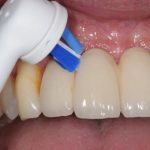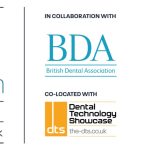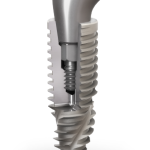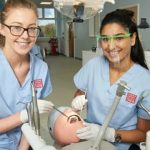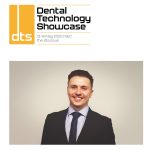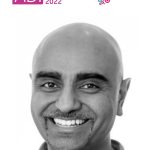Hay fever, or seasonal rhinitis, may be common in the UK, but it’s no less miserable for anyone for whom the start of spring means itchy eyes, sneezes and a blocked, runny nose.[i]
Weather patterns contribute to the amount of pollen produced, how it will disperse and its potency.[ii] A temperature between 18-28ºC when it’s dry, with low humidity and minimal breeze, will usually mean a high pollen count. But if it gets warmer than that, the count will decrease. Heavy rain in the morning tends to keep the pollen count low for the afternoon, but occasional wet days, recurring over many months, tend to mean a severe hay fever season overall.[iii]
Due to climate change, we can expect hotter, drier summers and warmer, wetter winters in the UK. Among the many public health impacts of climate change are invasive plant species being able to flourish; ragweed is one, which produces vast quantities of pollen capable of causing “severe allergic disease”.[iv] Air pollution from traffic in combination with pollen can also trigger hay fever symptoms and make them worse. You may have heard anecdotal evidence from people who say they enjoyed a temporary respite from their seasonal allergies during the first national lockdown, when the roads were quiet.
The type of pollen matters too. Grass pollen, with its season from May to July (although it can last longer), is the most common allergen. Different species of plant pollinate at different times, however. There is also the threat of mould spores released from falling and decomposing leaves, which peak in the autumn. Mould thrives in warm, wet conditions and last September was the second warmest on record in the UK, followed by an unseasonably warm and wet October. For anyone with a mould allergy, they may have experienced respiratory problems including wheezing, coughing and a tight sensation in the chest alongside the ‘classic’ hay fever symptoms.
Patients with hay fever may exhibit a range of other co-morbidities, from sleep disorders, to nasal polyps, infections of the middle ear and/or sinuses.[v] Dental complications include dry mouth and associated complications like sore throat and halitosis (antihistamines taken for hay fever can lead to dry mouth too). An impeded salivary flow is also a risk factor for caries and periodontal disease. If they feel stuffy around the maxillary sinuses, the upper molars might feel sore and not get cleaned as thoroughly as they should.

But the feeling of having to dread the longer, brighter days and avoid social occasions outdoors because the pollen count is high, is often the most distressing part of hay fever. Over-the-counter antihistamines, in various forms, usually give quick relief in most – but not all – cases, although some types can make people feel drowsy so they need to be careful with how they take their medication.
Oral health practitioners can offer practical, non-medical tips. Patients should ensure they are properly hydrated, to thin out nasal mucus, relieve dry mouth and combat decongestants. They should also keep bedroom windows shut, so travelling pollen does not land in their room and, if they choose to/must be outside on days with a high pollen count, or when autumn leaves could trigger their mould allergy, a good idea is to shower, wash their hair and change clothes once they get home. Also, to vacuum regularly, perhaps choosing a model with a special filter and avoid line-drying washing, particularly bed linen. Wiping surfaces, especially windowsills, with a damp cloth will remove pollen. If they’re having a day at the beach, getting in the sea will reduce contact with allergens. There are also balms that can applied around the nostrils, to act as a barrier. If there is no symptomatic relief, though, or if quality of life and routines are becoming severely affected, recommend they make an appointment with their GP.
They could also note when their symptoms start, end and get worse, to get more clues about how best to help themselves. Apps which track the pollen count can be a helpful resource too. Of course, even if some days are still a struggle, a good oral hygiene routine will make their mouth feel clean and comfortable and help negate the risk of developing dental caries or exacerbating periodontal issues. Ensure they are cleaning correctly, using the right-size tools; TANDEX makes high-quality brushes and interdental brushes for gentle, efficient and comfortable care at home. Also encourage them to attend regular consultations, to help them with conditions like dry mouth.
Hearing that hay fever and related allergies are likely to get worse isn’t what anyone who suffers wants to hear. Managing symptoms relies on patients taking control of their health, to optimise their own wellbeing. Empower patients with solutions and advice, while reassuring them that hay fever isn’t something to simply be endured. With a few changes, they can look forward to the start of spring.
Author Kimberley Lloyd- Rees on behalf of Tandex
Kimberley graduated from the University of Sheffield in 2010, where she now works as a clinical tutor in Dental Hygiene and Therapy as well as working in practice. She has spent her career working across a variety of specialist private and mixed dental practices, for the MOD and volunteering her time to a dental charity in Nepal.
For more information on Tandex, visit https://tandex.dk/
or the Facebook page https://www.facebook.com/TandexUK
Tandex products are now available from CTS Dental Supplies
https://www.cts-dental.com/ and DHB Oral Healthcare https://dhb.co.uk/
[i] Allergy UK. Hay fever and allergic rhinitis. Link: https://www.allergyuk.org/types-of-allergies/hayfever/ (accessed January 2022).
[ii] How does the weather affect hay fever? Met Office. Link: https://www.metoffice.gov.uk/weather/warnings-and-advice/seasonal-advice/health-wellbeing/pollen/how-does-the-weather-affect-hay-fever (accessed January 2022).
[iii] Met Office.
[iv] Hamaoui-Laguel, L., Vautard, R., Liu, L. et al. Effects of climate change and seed dispersal on airborne ragweed pollen loads in Europe. Nature Clim Change 5, 766–771 (2015). https://doi.org/10.1038/nclimate2652
[v] NHS overview: Allergic Rhinitis https://www.nhs.uk/conditions/allergic-rhinitis/ (accessed January 2022).







 “We’re going to be talking about topics like significant apical resorption, internal resorption, external resorption, ankylosis and horizontal root fracture. I’ll also be discussing patients who have existing maxillary anterior fixed partial dentures – in this scenario, the abutment teeth have already been prepared and the question is do you consider converting them to an implant and single crown, or do we give them another fixed partial denture? And how do we make these kinds of decisions?
“We’re going to be talking about topics like significant apical resorption, internal resorption, external resorption, ankylosis and horizontal root fracture. I’ll also be discussing patients who have existing maxillary anterior fixed partial dentures – in this scenario, the abutment teeth have already been prepared and the question is do you consider converting them to an implant and single crown, or do we give them another fixed partial denture? And how do we make these kinds of decisions?